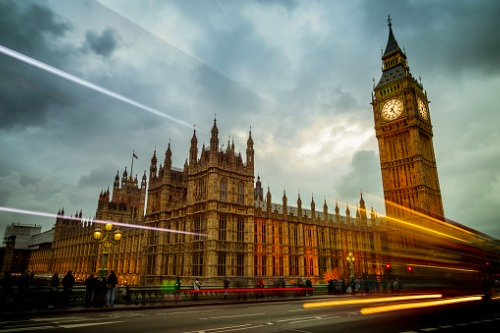BIBA calls for IPT cuts, more flood defence spending and apprenticeship levy reform in the Spring Budget

The British Insurance Brokers’ Association (BIBA) has called on the Government to reduce Insurance Premium Tax (IPT), invest in flood defences and reform the apprenticeship levy in the Spring Budget to help ease the impact of the cost-of-living crisis and protect consumers and businesses.
BIBA has called for a cut to the headline rate of IPT from 12% to 10%, for multi-occupancy residential buildings which require cladding remediation to be exempt from IPT, and for IPT on travel insurance to be aligned with the standard rate, ending the anomaly whereby 20% is applied.
In addition, BIBA has also called for cyber insurance to be exempt from IPT as the current low take up1 from businesses potentially causes a major exposure to UK firms. Cyber has been identified by AON and Marsh as a major risk to the global economy and to the UK.
BIBA believes the straightforward interventions called for in its budget submission to Treasury can reduce some of the cost burden, largely due to inflationary pressures, that consumers and businesses are facing with their insurance.
Graeme Trudgill, BIBA’s Chief Executive, commented: “We know individuals and businesses are struggling due to the cost of living, and this sits at the heart of our calls to action in our latest Manifesto and our budget submission. Recently there have been multiple stories about businesses and consumers cutting back on their insurance cover levels, or in extreme cases, cancelling cover entirely and we believe that these measures will make a difference.”
To help flood affected properties, BIBA has asked for Government to commit to long-term investment in flood defences at a higher level than 2020; exempt flood resilience materials from Value Added Tax, to reduce their cost and increase deployment; and to restate the commitment made in 2016 to ring-fence a proportion of IPT receipts to specifically fund flood defence investments.
The calls go alongside the need, as outlined by BIBA, for broader reforms to planning consent for buildings planned in areas of flood risk, and a need for local authorities to enforce existing regulations on new builds.
Trudgill added: “2024 marks the start of the election year, and at a time when political parties are trying to appeal to the country for support, they need to consider the realities people are experiencing. Particularly when their key economic targets include growth and economic security.
“We believe the measures we have set out would help increase the attractiveness of insurance; deliver cost savings for individuals and businesses; and improve wider resilience against flooding.
“Ultimately, insurance brokers always have customer protection at the heart of what they do, and we believe the upcoming Spring Budget is a great opportunity for the Government to act on this at a national level”.
BIBA’s final call is for reform of the apprenticeship levy to support talent and skills in the insurance sector, as well as for small businesses more widely. BIBA’s asks include making it more flexible so that levy-funded training can include wider skills training outside of formal apprenticeships, and amending the minimum duration requirement.
About BIBA
The British Insurance Brokers' Association (BIBA) is the UK 's leading general insurance organisation representing the interests of insurance brokers, intermediaries and their customers.
BIBA membership includes 1,700 regulated firms. BIBA brokers handle around half the value of all UK home, contents, motor, travel, commercial and industrial insurance policies. Insurance brokers make a direct and indirect contribution of 1% to UK GDP.

